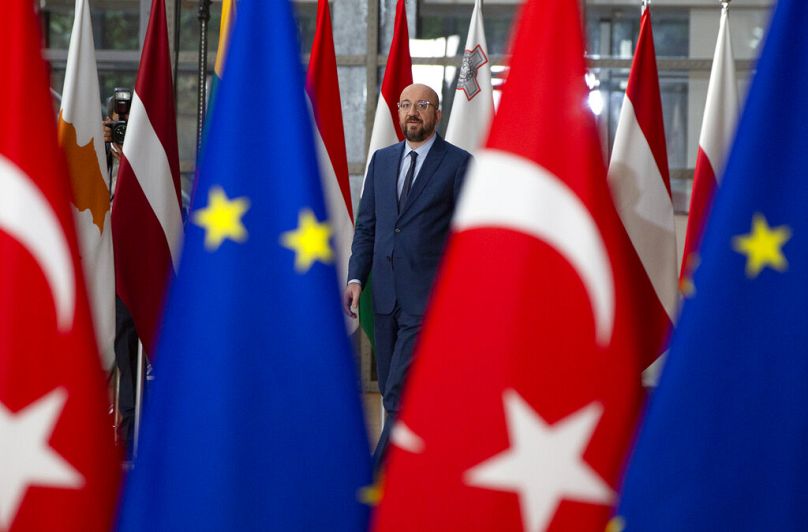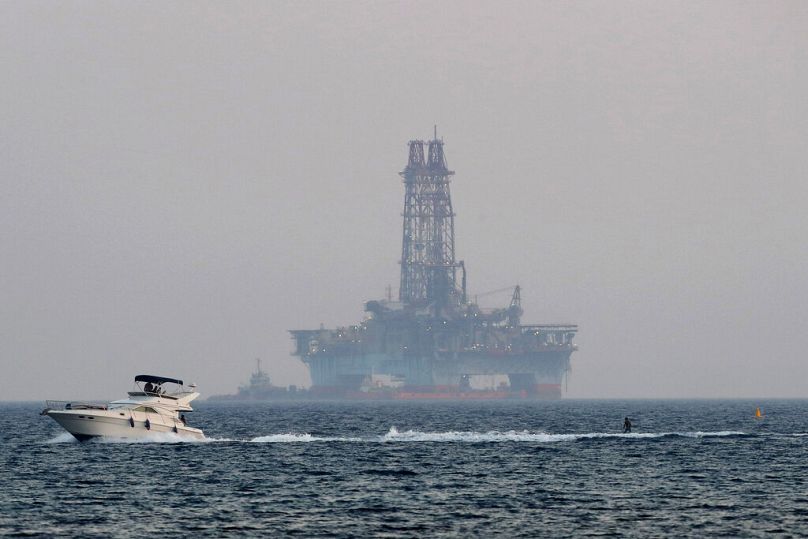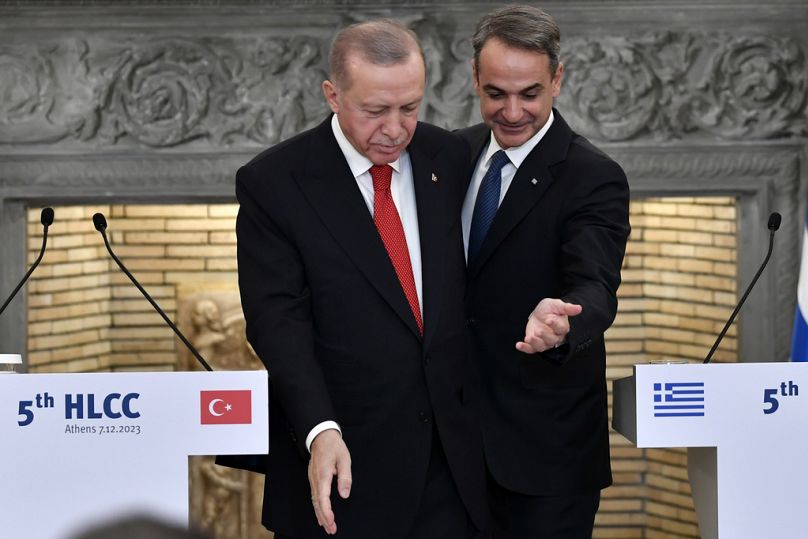In the European corridors of power, people are very well aware that if the necessary reforms are not implemented, 2024 will open another cycle of blame and threats that will poison EU-Turkey relations once again, Christos Kourtelis and Caglar Ozturk write.
A few months before the elections in Turkey in May, the incumbent President Recep Tayyip Erdoğan showed some signs of changing his aggressive tone towards the EU.
 ADVERTISEMENT
ADVERTISEMENT
 ADVERTISEMENT
ADVERTISEMENT
He stated that Turkey intended to become a full member of the EU and asked the Union to speed up the process.
However, such statements are not new to the president of Turkey, whose words and actions do not align. For the relationship to develop, a tangible change in the Turkish foreign and domestic policies is very much needed.
Such changes are very urgent, as Turkey’s accession process has been frozen since June 2018.
The positive agenda, launched in October 2020, did not yield serious results, as Turkey was threatening other EU member states with its drilling activities in the Eastern Mediterranean.
The threats from Brussels for sanctions helped to stop the Turkish drilling activities, but since then the discussions only focused on urgent challenges, such as the management of migration flows, the modernisation of the Customs Union (CU) and the visa liberalisation for Turkish citizens.
Is Turkey's piecemeal approach hindering progress?
A few months ago, in June, to revitalise the positive agenda, the European Council asked the High Representative and the European Commission to prepare a report regarding the current state of the EU-Turkey relations and potential instruments and options to proceed strategically and in a "forward-looking manner".
The report took into account the pillars of the positive agenda, yet the piecemeal approach of Turkey so far hinders the improvement of the bilateral relations.
More specifically, the fact that Turkey has not managed to meet all the criteria of the roadmap that was prepared alongside the March 2016 EU-Turkey Statement does not help policymakers in the EU to suggest the liberalisation of visas.
Actually, in recent years there has been an increasing rejection of visa applications of Turkish citizens.
It seems that the EU institutions have acknowledged the slow reform process in the candidate country, as the joint communication advises the member states to facilitate access only to specific groups, such as students, entrepreneurs and Turkish citizens with family members in the EU.
Problems in trade rules remain unaddressed
The modernisation of the CU is another important topic in the bilateral relations. Following the European Commission’s request from the World Bank regarding the impact of the modernisation of the Customs Union and the agreement for the migration flows in 2016, the two sides decided to resume discussions about the CU.
The discussions were quickly interrupted due to the Turkish provocations in the East Mediterranean and the barriers that the Turkish government posed to bilateral trade.
The current government promised to address the problems in its trade rules, but the most recent joint communication has linked the modernisation of the CU to the resumption of the Cyprus settlement talks according to the UN auspices.
Given that Turkey advocates a two-state solution, it is very interesting to see if the current government will manage to make a U-turn and how it will communicate a change in its foreign policy (according to the UN mandates) to its domestic audience.
Migration key to Ankara's credibility
Another important problem is related to the disinterest of Turkey to receive irregular migrants from European countries.
The lame excuse of the potential spread of COVID-19 made the EU-Turkey migration deal dysfunctional and as a result, the Aegean and Balkan routes are now complemented by increasing numbers of migrants passing towards Cyprus.
Turkey ought to respect its commitment to the agreement to increase its credibility as an international negotiator.
At the same time, and as long as Turkey does not act aggressively towards other EU member states, Brussels must also pay more attention to issues which are very critical to the candidate country, such as economic growth, energy and transport.
The invitation to the Turkish ministers to the informal meetings of EU foreign ministers (Gymnich meetings) is a good start to exchange views about common problems in a more structured way.
These discussions will shine a light on whether or not the Turkish side is ready to realign with the CFSP.
Lack of trust and low expectations
2024 is set to demonstrate whether or not the Turkish positive rhetoric is meaningful or if it is another move of the Ankara administration to achieve temporary gains.
The recent visit of Erdoğan to Athens indicated that there is a wind of change, but not many people in Brussels trust the Turkish leader.
The recent joint communication clearly shows that policymakers in the EU do not have high expectations, as Turkey must cover a long reform process.
In the European corridors of power, people are very well aware that if the necessary reforms are not implemented, the new year will open another cycle of blame and threats that will poison EU-Turkey relations once again.
Christos Kourtelis is Assistant Professor in European Public Policy at Panteion University, and Caglar Ozturk is independent researcher in EU-Turkey relations.
At Euronews, we believe all views matter. Contact us at view@euronews.com to send pitches or submissions and be part of the conversation.













